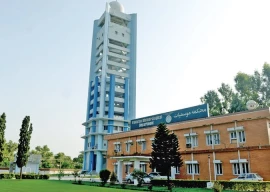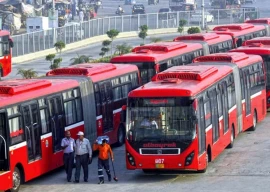
The institution called ‘civil service’ has thus had the honour of undergoing 38 major reform initiatives between the years 1947 and 2018. It also has the distinction of not letting any of those initiatives change its perennial style or speed of working. So much for its robustness.
Why did the earlier reform initiatives fail to make an impact? They focused far too much on the typical human resource issues, such as, recruitment, training, development, career planning, etc. At no point was it understood that one could improve all these factors and yet have a dysfunctional civil service.
Why do we need to endlessly pamper the insatiable demand for perks, privileges and powers of an already well-lubricated class? The ordinary citizens are only interested in the output, results, services, fairness, efficiency, convenience and courtesy that they receive, while dealing with the government. Currently all this is reserved for the rich, influential and connected. For ordinary citizens dealing with a government organisation is an ordeal that entails endless visits, torturous procedures, unwarranted affidavits, meaningless photocopies, multiple approvals, prolonged delays besides the proverbial ‘pillars and posts’. This is what needs to be changed and not the ‘civil service’.
What needs to be changed is the ‘process’ that actually determines how a government department delivers a service to an ordinary citizen. Consider two, rather rare, but excellent examples of how ‘process’ changes have immensely reduced the number of visits, time taken and improved the efficiency, accuracy and quality of services. These are services relating to making or renewing passports and CNICs. This was done by improving the work-flow, simplifying, computerising and creating built-in checks (instead of bureaucrats) in the process.
Now a few examples of how bureaucracy’s unwillingness to change processes results in torture generating services. Millions of pensioners and senior citizens queue up every month and waste an entire day in the National Savings Centres to receive profit on their own deposited funds. The recently introduced system of first opening an account at the Savings Centre and then going to a bank has only added to the steps, complexity and agony. Despite two decades of relentless chasing, the department insists on retaining the age-old ‘process’ and refuses to automatically transfer profits to the depositors’ bank accounts at the end of every month.
Only in the province of Sindh, some 100,000 to 200,000 cars use fraudulent AFR, foreign, personalised, or fake government look-alike number plates. The police have no ‘process’ to identify the validity of a vehicle, its owner, number plate or tax status. The police are unwilling to let constables on duty use a handheld device linked to the central vehicles database to immediately verify this data. Likewise, the police are unwilling to change its 100-year-old FIR registration process.
The government makes millions of vehicle owners to make one or more visits to a designated bank or an office to pay their motor vehicle tax every year. These millions of annual visits involve fuel consumption, road congestion, carbon footprint and lost man-hours. This could be entirely eliminated by enabling citizens to make payments using mobile phone money transfer systems.
What Pakistan needs to do is to re-engineer, simplify and automate all its government processes. They must be re-designed for ease, timeliness, clarity, accessibility and courtesy towards ordinary citizens.
Finally what cannot be measured cannot be improved. The performance of each federal and provincial department (including the police and municipal waste management) must be measured every year against a well-defined Customer Satisfaction Index. The entire focus of the state must be on continually improving the service delivery processes, making them convenient for the citizens and impermeable to external interventions.
Published in The Express Tribune, September 23rd, 2018.
Like Opinion & Editorial on Facebook, follow @ETOpEd on Twitter to receive all updates on all our daily pieces.
1723621875-0/kylie-(1)1723621875-0-405x300.webp)



1725193622-0/Jodie-Grinham-(1)1725193622-0-165x106.webp)














COMMENTS
Comments are moderated and generally will be posted if they are on-topic and not abusive.
For more information, please see our Comments FAQ